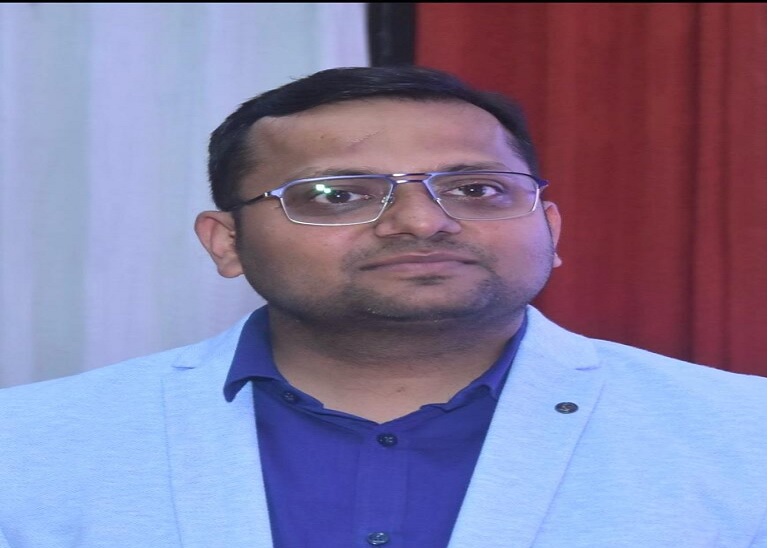
Dr. Vivek Verma
-Ramalingaswami Re-entry Fellowship Awardee
-Postdoctoral Research Associate, Durham University, United Kingdom.
About
- Ramalingaswami Re-entry Fellowship Awardee
- Postdoctoral Research Associate, Durham University, United Kingdom.
- Postdoctoral Fellow, National University of Singapore, Singapore.
- Ph.D. (Biological Sciences), National University of Singapore, Singapore
Having an undergraduate degree in agricultural sciences, I was always inclined towards gaining a better insight into plant developmental and defence aspects. This motivated me to take up a Ph.D. position at National University of Singapore (NUS), Singapore focused on the signal transduction proteins of the plant hormone cytokinin. I continued at NUS as a postdoctoral fellow (Dec ’12 – Apr ’15) working to elucidate the molecular role of gibberellic acid/DELLA proteins in seed dormancy. The intrigue developed towards unravelling intricate signalling pathways prompted me to move to Durham University, U.K. for another postdoctoral research project (May ’15 – Dec ’18). The work at Durham University was aimed at understanding the role of Small Ubiquitin- like MOdifier (SUMO)ylation, a post-translational modification (PTM) system (see below for details), in defence responses in plants. In Jan ’19, I returned to India as a Ramalingaswami Fellow at Central University of Rajasthan, where my group was working to identify, isolate and functionally characterize the different SUMO machinery components from chickpea and pigeonpea, two major pulse crops of Indian sub-continent. Currently, we are trying to dig deeper into chickpea defence responses in an attempt to understand how they are employing SUMO to fortify their immune networks.
Background
Professional Experience
Jan ’19–Mar ’24 – Ramalingaswami Fellow, Central University of Rajasthan, Rajasthan, India
May ‘15 – Dec ’18 – Postdoctoral Research Associate, Durham University, Durham, UK
Dec ‘13 – Apr ’15 – Research Fellow, National University of Singapore, Singapore
Dec ‘12 – Dec ’13 – Research Assistant, National University of Singapore, Singapore
Education
2007-‘12 – Ph.D. (Biological Sciences), National University of Singapore (NUS), Singapore
2005-‘07 – M.Sc. (Biotechnology), Indian Institute of Technology Roorkee, Uttarakhand, India
2001-‘05 – B.Sc. (Hons) Agriculture, C.C.S. Haryana Agricultural University, Haryana, India
Honours and Awards
- Recipient of Ramalingaswami Re-entry Fellowship Department of Biotechnology (DBT), GOI (2019).
- All India Rank- 543 in Graduate Aptitude Test in Engineering (GATE) Life Sciences, Ministry of Human Resources Development, GOI (2006).
- Got selected for ‘summer school’ organized by School of Life Sciences, Jawaharlal Nehru University, New Delhi, India (2006).
- Recipient of scholarship for M.Sc. (Biotechnology) by Department of Biotechnology, GOI (2005-07).
- Recipient of National Talent Scholarship for B.Sc. Agriculture by Indian Council of Agricultural Research, GOI (2001-05).
Research Group Overview
The long-term research goal of the group is to elucidate and comprehend the molecular processes underlying plant pathogen (bacterial and fungal) interactions. SUMOylation -covalent conjugation of ~11 kD SUMO protein to the target lysine (K) catalyzed by an enzyme cascade- has emerged as a key PTM in plant immune signalling ensuring prompt regulation of cellular events. Nevertheless, most of our knowledge about the integral role of SUMO in plant defence responses is derived from Arabidopsis and information about its roles in major food crops is still in its infancy. Therefore, using chickpea as the crop plant, we are seeking to identify defence nodes modulated by SUMO and understand the intricate involvement of SUMO in mediating immune responses in chickpea.
At GBU, using an array of molecular, biochemical and proteomic approaches, we are intending to focus on two major aspects: –
- Elucidate the role of SUMOylation in pathogen effectors-mediated suppression of immune responses in chickpea.
- Exploring the contribution of SUMO in regulating drought-fungal infection crosstalk in chickpea.
The proposed work hopes to boost genomic selection processes for improved breeding programs and develop chickpea cultivars resilient to pathogen infections.
Publications
- Ranjan A, Raj S, Soni K and Verma V (2024). Insights into the role of SUMO in regulating drought stress responses in pigeonpea (Cajanus cajan). Plant Cell Reports (in press). [IF: 6.2].
- Srivastava M, Verma V*, Srivastava AK* (2021). The converging path of protein SUMOylation in phytohormone signalling: highlights and new frontiers. Plant Cell Reports 40:2047-2061. (*corresponding authors) [IF: 6.2]
- Verma V*, Srivastava AK*, Gough C, Campanaro A, Srivastava M, Morrell R, Joyce J, Bailey M, Zhang C, Krysan PJ and Sadanandom A (2021). SUMO enables substrate selectivity by Mitogen-activated protein kinases to regulate immunity in plants. Proceedings of the National Academy of Sciences, USA 118 e2021351118. (*shared first authors). [IF: 12.78].
- Orosa B*, Yates G*, Verma V*, Srivastava A.K.*, Srivastava M, Campanaro A, De Vega D, Fernandes A, Zhang C, Lee J, Bennett M and Sadanandom A (2018). SUMO conjugation to the pattern recognition receptor FLS2 is required to trigger intracellular signalling in plant innate immunity. Nature Communications 9 5185. (*shared first authors). [IF: 17.7].
- Ravindran P, Verma V, Stamm P and Kumar PP (2017). A Novel RGL2–DOF6 Complex Contributes to Primary Seed Dormancy in Arabidopsis thaliana by Regulating a GATA Transcription Factor. Molecular Plant 10:1307–1320. [IF: 21.9].
- Verma V, Sivaraman J, Srivastava AK, Sadanandom A and Kumar PP (2015). Destabilization of interaction between cytokinin signaling intermediates AHP1 and ARR4 modulates Arabidopsis development. New Phytologist 206:726-737. [IF: 10.3].

